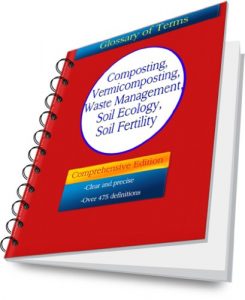Vermiculture is, in its most exact sense, raising earthworms, usually for sale as fish bait or for use in vermicomposting. The science and art of practicing vermiculture (which, when used broadly includes vermicomposting, i.e., producing “worm compost”) includes a whole range of terms, many of them scientific and many from related fields. At the risk of over-simplification, vermicomposting utilizes earthworms than transform garbage (organic waste) into “gold”—the gold consisting of worm-worked material, sometimes known as earthworm castings, and called vermicompost by soil scientists. The associated disciplines of vermiculture and vericomposting include waste management, soil ecology, composting, and terms useful in understanding what makes for soil fertility. In its infancy, worm workers (mostly worm farmers) were content to use imprecise terms like “redworm” to describe certain species of pigmented earthworms. Some worm farmers even went so far as to invent names for earthworms to give the illusion that their species were unique and thereby create a marketing advantage. As scientists entered the field, however, greater precision was required as our understanding increased. And since the range of interested parties in vermiculture includes waste managers, composters, soil scientists, and agricultural specialists, their unique terminology has helped clarify our comprehension. This resource aims to provide students of vermiculture with a helpful aid in understanding key terms used by worm workers and soil scientists alike.
This site is safe
You are at a security, SSL-enabled, site. All our eBooks sources are constantly verified.






